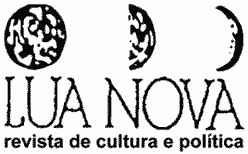The history of the Republic Proclamation in Northern periphery of the Brazilian Empire (1822-1889), as well as the specificities of its regional cultural consequences still lack more detailed analysis. In Maranhão fin de siècle, the economic crisis of agro-export system added to the slave labor political crisis bequeathed to the republican regime early decades an intense social struggle around the definition of the citizenship boundaries, in which the racial subordination of black people is a crucial point. This paper looks closer to these deadlocks through the fictional work of the black writer Raul Astolfo Marques (1876-1918). Son of a free cafusa, the author is an outgrowth of a generation of slave descendants who have floundered in the fragility of freedom conquered in the formalism of Slave Abolition and equality, granted on November 15, 1889. A significant part of his literature can be understood as a systematic attempt to interpret these hopes and frustrations. The republic subject appears throughout his intellectual career, in writings e.g. "Abnegação" (1901), "A última sessão" (1903), "O discurso do Fabrício" (1903), "A opinião da Euzébia" (1904), "De coroa e barrete" (1908) e "Reis republicanos" (1916). It remains to be said that his only novel A nova aurora (1913) is entirely devoted to the description of the first month of republican regime implementation. In the first part of the present paper, I ask which "versions of history" and significant episodes guide his fictional reconstruction of the November 15th 1889 consequences, focusing the short story "O discurso do Fabrício" and the chronicle "A última sessão". In the second part, I discuss the literary treatment given by the author to the problem of public policy in Rodrigues Alves (1902-1906) republican government, the heyday of sanitation ideology in the country, with tremendous impact in Maranhão due to the outbreak of bubonic plague in early 1904s. In this respect, combining text, pre-text and context, it is intended to unveil the pathways of a literary choice guided by an increasingly insulated and peripheral cultural environment in the oligarchic political game with hegemony of São Paulo and Minas Gerais, but also mediated by dependent socio-economic relations and racial subordination.
Republic; Modernity; Citizenship; Maranhão; Black intellectuals
